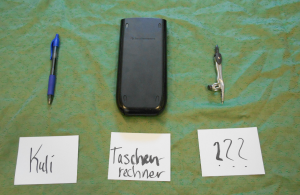I have basically three months until I climb on board a plane for Stuttgart. I don’t know how you feel about change, but I’m pretty much freaking out about it. (The added stress from the end of the semester isn’t really helping.) Living in a foreign country is pretty scary as is, but it’s even scarier when you’re supposed to be working there as well.
 Every time I’ve started working at a new place, I’ve had to learn a whole new vocabulary. Every industry and company has their own jargon, and the differences amplify when you add technical vocabulary to the list. It generally takes me a month to fully understand the lingo. And, in general, going to Germany will mean I have to learn a whole new set of words and procedures for just regular life. Hopefully, those years of studying German will pay off.
Every time I’ve started working at a new place, I’ve had to learn a whole new vocabulary. Every industry and company has their own jargon, and the differences amplify when you add technical vocabulary to the list. It generally takes me a month to fully understand the lingo. And, in general, going to Germany will mean I have to learn a whole new set of words and procedures for just regular life. Hopefully, those years of studying German will pay off.
What I’m worried about is transitioning to my internship. Will I have developed enough German skills to sort through conversations to find what’s technical and what’s not? There’s always a jump between engineering at school, and engineering in the workplace. Sometimes, they seem to be on opposite ends of the spectrum. When I get comfortable with jargon, I can generally connect it back to what I’ve previously learned. Will the language barrier keep me from making those connections?
I really can’t answer that until I’ve spend time abroad. However, in anticipation of this problem, I’ve developed a few strategies to combat my ignorance of technical German:
- Focus on language for industries I’m already knowledgeable about. I’ve already had one engineering internship, and will finish a different one this summer before I go abroad. Since those experiences will shape my resume, I’m starting to develop a list of words for industry specific terms. (Eg. I worked with aluminium rolling mills last summer: Aluminium Vorgerüste in German.) Thanks to my time at Alcoa, I know German companies who make mill products, and can learn vocab, just by reading the German version of their sites. General dictionary searches rarely can tr
 anslate the jargon as well as the industry themselves.
anslate the jargon as well as the industry themselves. - Find Technical Articles. Similarly to industry jargon, technical articles will be full of official vocabulary from the field itself. Reading these articles not only teaches me more German, but also adds to my knowledge of engineering.
- Speaking with native speakers in a casual environment. I’ve attended the weekly Kaffestunde at the German house frequently since I came to Valpo, and it has definitely improved my comprehension of German. Listening to native speakers rapid fire discuss politics or baking or their travels using words I didn’t learn in class, and actually beginning to understand them is really cool. It also tells me that if I can start to understand half the words, I should be able to understand the gist of the conversation.
That’s what I’ve put together so far. I’ll check back in on this after I’ve been over for a bit and report on the success/fail rate, or if I find anymore brilliant prep tips.
So nervous. So excited!
Leave a Reply